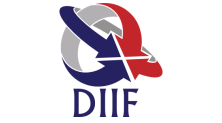Climate change risks and mitigating measures of freshwater aquaculture in unmanaged ponds of Kaushambi district U.P.
DOI:
https://doi.org/10.30574/gscbps.2020.13.2.0385Keywords:
Flooding of ponds, Embankments, Disease outbreak, Mortality, Early harvest, LimingAbstract
The purpose of the study is to identify various climatic change risks encountered by fish farmers while doing freshwater aquaculture in the unmanaged ponds of district kaushambi Uttar Pradesh. The various climate change risks which were faced by rural farmers of Kaushambi are water quality, flooding of ponds, less rain, heavy mortality of fishes, planktonic collapse, long dry spells, disease outbreak, destruction of embankments etc. The study also includes the measures to encounter these risks. To maintain the quality of water the farmers have used lime, manure, alum, KMnO4, salt and exchange of water. To control the flooding of ponds the farmers raises embankments by bamboo fencing with net. They have filled their ponds with pumps from canals / rivers and tube well water to face the problem of less rain and long dry spells. To avoid the heavy mortality of the fishes they have used early harvest, liming, shading and water movement by beating of water for oxygenation. To overcome with the planktonic collapse the farmers have used cow dung, gobar gas slurry, use of khari, choker in the water and exchange of 50 percent water. To control the disease outbreak the farmers have adopted lime, KMnO4, medicines, neem leaves, banana stem etc.
Metrics
References
IPCC (2007a) Impacts, Adaptation and Vulnerability. ML Parry, OF Canziani, JP Palutikof, PJ van der Linden, CE Hanson, Eds. Cambridge University Press, Cambridge, UK, 976 p. IPCC (2007b) Climate Change: Synthesis Report. Contribution of working group I, II and III to the Fourth Assessment Report of the Intergovernmental Panel on Climate Change. Geneva: Intergovernmental Panel on Climate Change Core Writing Team, Pachauri RK, Reisinger, (Eds.). IPCC, Geneva Switzerland (2007), 104.
Nhemachena C Agriculture and Future Climate Dynamics in Africa: Impacts and Adaptation Options. Pretoria: University of Pretoria. Ph. D. Thesis (2009), 150.
Pouliotte J, Westerhoff L. Adaptation and Development: Livelihood and climate change in Subarnabad, Bangladesh. Climate Change and Development (2009) 1: 31-46.
Daw T, Adger WN Brown K, Badjeck MC. Climate changes and capture fisheries: potential impacts, adaptation and mitigation. In k. Cochrane, C. De Young, D Soto, T Bahri, eds. Climate change implications for fisheries and aquaculture: overview of current scientific knowledge, 107-150. FAO Fisheries and Aquaculture Technical (2009), 530. Rome, FAO. 212.
FAO World Review of Fisheries and Aquaculture. State of World Fisheries and Aquaculture (2014) 1-10.
CSO-MFS. Manual on Fishery statistics. Ministry of Statistics and Programme Implementation, Government of India (2011).
Inoni OE. Allocative Efficiency in Pond Fish Production in Delta State Nigeria: A Production Function Approach. Agriculture Tropical Et Subtropica (2007), 40(4):127-134.
Rahaman SKM, Ghosh A, Pal S, Nandi S. A comparison of resource use efficiency and constraint of wastewater and freshwater fish production system in West Bengal. Economic Affair (2015), 60(2): 249-255.
Akenbor AS, Ike PC. Analysis of Technical Efficiency of Catfish Farming in Edo State, Nigeria. Journal of Biology, Agriculture and Healthcare (2015), 5(2): 96-101.
Uddin MT, Farjana I. An Economic Study of Low Lying Fish Farming in Selected Areas of Kishoreganj District. Progressive Agriculture (2012), 23(1, 2): 81-90.
Amaru S, Netra BC. Climate Adaptation: Institutional response to environmental constraints, and the need for increased flexibility, participation and integration of approaches. Applied Geography (2013), 39: 128-139.
Saha GS, Radheshyam, HK De, K Kumar, PP Chakraborty, AS Mahapatra, N Panda. Perceptions of the farmers and fishery extension on climate change parameters affecting aquaculture. J Inland Fish Soc. India (2015), 47 (2):6-12.
Downloads
Published
How to Cite
Issue
Section
License

This work is licensed under a Creative Commons Attribution-NonCommercial-ShareAlike 4.0 International License.
















